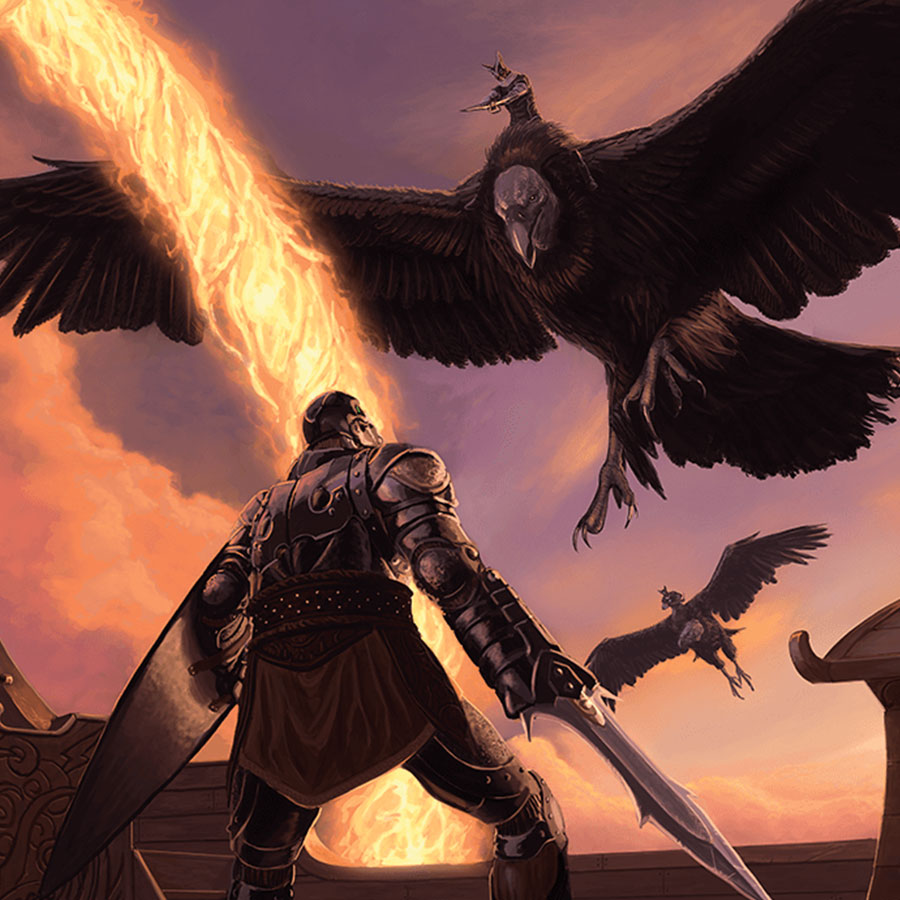15 Common Skill Check Mistakes in D&D

Written by Luke Hart
Skill checks are one of the core mechanics of Dungeons & Dragons, but they’re also one of the most misunderstood and misused. Whether you’re a player trying to sneak past the guards or a dungeon master determining what a character might know about trolls, skill checks pop up constantly—and it’s easy to get them wrong.
So let’s walk through 15 of the most common skill check mistakes in D&D and how to handle them correctly at your table.
By the way, if you're looking for a low level pre-made adventure module for your D&D 5e game, I highly recommend Into the Fey. It's designed for levels 1 to 5, features tricksy fey and their sly schemes, and contains everything you need to play!
Watch or listen to this article by clicking the video below.
1. Confusing Perception and Investigation
Perception is about spotting something.
Investigation is about analyzing what you found.
Example: You roll Perception to notice a secret door in the wall. If you find it, then you roll Investigation to figure out how to open it. The same goes for traps—Perception to see it, Investigation to determine what it does.
2. Letting Players Hide in Plain Sight
Rules as written (PHB p.177): “You can’t hide from a creature that can see you clearly.”
If the rogue is standing in broad daylight in the middle of the room, they can’t just roll a 28 on Stealth and vanish. They need cover, darkness, invisibility, or another way to block line of sight before attempting to hide—unless house rules say otherwise.
3. Setting the Wrong DCs
The DMG (p.238) provides a guideline:
- Easy: DC 10
- Moderate: DC 15
- Hard: DC 20
- Very Hard: DC 25
- Nearly Impossible: DC 30
The harder the challenge, the higher the DC. And remember: a “hard” task for a level 1 character isn’t necessarily hard for a level 12 character. Adjust accordingly, but don’t let difficulty drift too far from your original narrative description.
4. Letting Everyone Roll for Everything
Yes, by RAW, any player can attempt any skill check. But for some tasks, it’s fair to require proficiency. For example:
- Knowledge skills like Arcana, History, Nature, and Religion often require training to be useful.
- Tools like thieves’ tools or musical instruments should require proficiency to even attempt a use.
- Survival for tracking or hunting might also require training, depending on the complexity.
Let your table’s expectations and worldbuilding guide what’s “common knowledge” versus what takes training.
5. Treating Insight Like a Mind-Reading Spell
Insight can help determine if someone is being deceptive or hiding something—but that’s it. It doesn’t tell you what the NPC is hiding, or what they’re planning to do next.
Even the PHB's line about using Insight to “predict someone’s next move” should be taken with a grain of salt. Insight has limits.
6. Ignoring Degrees of Failure
Failing a skill check shouldn’t always be binary. If someone fails by 1, maybe they’re close. If they fail by 10, maybe something bad happens.
For example, trying to pick a lock:
- Roll 14 vs. DC 15: You’re struggling but can try again.
- Roll 4 vs. DC 15: You jam the tools and risk breaking them.
This gives you more narrative variety and can make the game more engaging.
7. Using the Wrong Knowledge Check
Here’s a helpful guide for creature identification and knowledge skills:
- Arcana: Magic, spells, items, planes, aberrations, celestials, constructs, dragons, elementals, fey, fiends, monstrosities, oozes
- History: Past events, civilizations, famous figures, giants, humanoids
- Nature: Weather, plants, terrain, beasts, plants
- Religion: Deities, rites, cults, celestials, fiends, undead
Sometimes more than one skill applies—use discretion.
8. Being Too Rigid with Athletics vs. Acrobatics
Athletics = strength-based movement (climbing, grappling)
Acrobatics = dexterity-based movement (balancing, tumbling)
Often, both can apply to the same situation, and you should let players choose how they attempt a task, based on how they describe it and their character’s abilities.
9. Treating All Skill Checks as Instantaneous
Some actions take time. Breaking down a reinforced door might take minutes, not seconds—and that delay might have consequences (like alerting enemies nearby).
Let success margins influence how long things take. A high roll might mean quick success; a borderline pass might take longer or come with complications.
10. Confusing Performance, Instruments, and Deception
Performance, instrument checks, and Deception often overlap.
- If your bard is playing music to impress, that’s Performance.
- If your bard is trying to sound amazing on a specific instrument, that’s a tool (instrument) check.
- If they’re lying, it’s Deception.
When unsure, ask for both: if the first succeeds, grant advantage on the second. Keep things flexible, fun, and fast.
11. Letting Players Try Again… and Again
Some checks shouldn’t allow retries—especially knowledge or Stealth checks. If you fail a History check about a magic item, you just don’t know. Thinking harder won’t help.
Other checks might allow retries with consequences (e.g., repeated door bashing alerts enemies), or unlimited retries in survival situations (e.g., foraging over multiple days). Use judgment.
12. Letting Skill Checks Do Too Much
Don’t let a player solve a whole puzzle with a single Investigation check. Skill checks can give clues—but they shouldn’t override creative problem-solving or roleplay.
Sometimes, it’s okay for success to come only through player ingenuity.
13. Misusing Group Checks
Don’t allow everyone to roll individually for the same task. That’s “dice pile-on,” and it makes challenges trivial.
Use group checks instead:
- Method 1: One player rolls with advantage.
- Method 2: Everyone rolls; majority success means group success.
However, in cases like Stealth, a single failure can blow the group’s cover—so adjust expectations accordingly.
14. Turning Every Beast into a Pet with Animal Handling
Animal Handling is not a magic “tame anything” button. A successful check might calm an aggressive animal or keep a horse from bolting—but it doesn’t make a wild wolf your new sidekick. That’s a druid or ranger thing, not something you get just by rolling high once.
15. Treating Natural 20s as Auto-Successes on Skill Checks
Page 194 of the Player’s Handbook clearly states that a natural 20 is a critical hit, not a guaranteed success for skill checks. Rolling a 20 doesn’t mean you do the impossible.
A level 1 character shouldn’t be able to leap a 50-foot chasm just because they rolled a 20. Reward good rolls, but keep realism and game balance in mind.
Confront Devious Fey and Their Tricksy Plots!
For years, the fey creatures inhabiting Pelview Grove to the north and Pelfell Bog to the east have not been a source of trouble, though perhaps they were a shade too mischievous at times. That has now changed.
Beset on all sides by a variety of issues -- childish pranks gone wild, dwarves forced out of their own brewery, and farmers missing -- the Aeredale guard is looking for help from local adventuring parties to set things right.
For those brave souls who accept the call to adventure, it'll be time to go into the fey.
If you’re looking to start up a new 5e campaign or reboot your current one, Into the Fey may be exactly what you need. Designed for levels 1 to 5, Into the Fey contains everything you need to start playing:
- Eleven fey-themed adventures for level 1 to 5 adventuring parties
- Over 40 new fey monsters
- The fully fleshed-out town of Aeredale
- Maps of Aeredale, the surrounding region, and the Fey Plane
- Player handouts
- Hag potion system
- 15 new fey magic items
- JPG image files of all Into the Fey adventure maps, including GM versions and gridded/non-gridded player versions
- JPG images files of all Into the Fey world maps
- Digital tokens of Into the Fey NPCs and monsters
Pick up the Into the Fey Ultimate Bundle to get the hardcover, the PDF, digital maps, and digital tokens.
Starting a new campaign can be tons of work; let Into the Fey do some of the heavy lifting for you!
-
Posted in
Game Master How-To Articles







